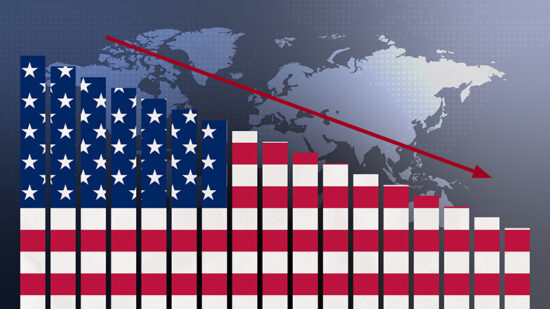According to the inaugural JP Morgan Asset Management barometer survey, European consumers remain overwhelmingly and disproportionally reliant on savings products.
While nearly 80% are currently saving into cash accounts, 76% of respondents don’t own a single investment product.
This is despite half of the respondents (49%) saying they are unhappy with poor returns on their cash savings but are either “too afraid or ill-informed about markets” to take action.
“We might now be facing the perfect storm,” Karim Zouhdi, European Financial Planners Association’s executive manager told International Adviser. “On the one side we need more and better financial education for our customers, and on the other side the banking system is weaker than ever in both reputation and strength.
“In my opinion, it seems that a public-private collaboration is needed in order to regain the confidence in the financial industry and to start financial education programmes in a large scale at schools and educate our bank employees, not only on technical issues but also in behavioural finance.”
The impact on savers
In 2007, it was possible to generate €4,650 (£4,112, $5,414) of income on a three-month bank deposit investment of €100,000. That same amount invested in March this year would generate zero.
The average annualised real return of cash over approximately the last two decades, 2000 to 2017, is negative (-0.6%) compared to equities at 4% and bonds at 4.6%.
In the dark
“Simple lack of knowledge about markets and investment options seems to be leaving Europeans in the dark,” said Massimo Greco, head of Emea Funds, JP Morgan Asset Management.
“Investors need to plan, save and invest for the realities of today’s markets with an awareness of how to achieve financial security over the long term. Those sitting in cash are not capturing the risk premium associated with riskier investments and they are sacrificing the power of compounding, one of the biggest financial advantages available.
“Compounding makes sums grow at a faster rate than simple interest, as you earn returns on returns, snowballing your wealth over time.
“Fear of market fluctuations and lack of knowledge about the capital markets doesn’t have to be paralysing. A first step for turning savers into investors could be well-diversified multi-asset income funds, which can help to generate income while managing risk.”
Better advice
Barcelona-based Zouhdi added: “For sure, we need more and better human financial advisers, and more transparent and fair banking fees where customer interests always come first.
“At the end, everyone deserves having a long term and well-diversified portfolio despite customers wealth. For those who are willing or able to afford it, it is always recommended to have a tailor-made financial advice.”
JP Morgan Asset Management’s inaugural 2018 European Income Barometer Survey collected the opinions of 8,000 individuals across Austria, Belgium, Germany, Italy, Spain and UK.
Researchers found that:
- Austria is home to the highest number of savers (92% compared to a European average of 78% saying they save) and investors (38% compared to a European average 24%). Austrians were also the most pessimistic about interest rates.
- Belgium boasts the highest proportion who said they were saving for retirement (33% of respondents versus a European average of 21%).
- Italy is home to the lowest number of investors (13% of respondents versus a European average of 24%). They are also the most conservative.
- Spanish respondents show the highest proportion of interest in regular income from investments with 44% compared to a European average of 29%. Spaniards are also the most optimistic regarding interest rates.
- German savers are the least satisfied in Europe regarding the investment performance of their savings accounts, with 67% of German respondents unhappy versus a European average of 49%.
- Comparatively few German respondents rely on cash alone; they have the lowest proportion holding cash accounts (29% of respondents versus a European average of 73%).
- Last week the UK regulator acted to stop pensioners, who withdraw their pension funds into cash, losing out.








